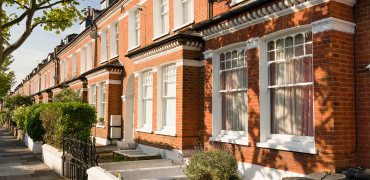If you’ve been following this column over the past few months, you’ll have noticed me focusing on renewable heating in general and air source heat pumps in particular. This month I thought I’d ask the most basic of questions.
A fully installed and commissioned heat pump is likely to cost about double that of a gas boiler installation, so why would any plumber consider trying to offer this option to customers?
Anyone who knows me knows I’m not that much of a ‘tree hugger’ and I promise I’m not being paid by the ‘green lobby’ but the simple fact is that as a nation, we will have to move from gas heating to a more sustainable form over the next decade or so.
The Government has already recognised this and is fully behind heat pumps as a key part of the low carbon future of heating. The Committee on Climate Change has forecast that by 2030, heat pump heating sales will rise to over 1 million units per year.
This industry is at the forefront of saving the planet - And you thought you were just a heating engineer!
Whilst the economic arguments are harder against gas – which remains our cheapest fuel at the moment, the financial benefits over oil, LPG and direct electric are much easier to demonstrate and the only surprising thing is that we’ve not seen heat pumps take off much, much quicker, especially in off-gas areas.
Manufacturers such as Mitsubishi Electric have been quick to target the sectors most likely to embrace heat pumps, such as social housing which have almost adopted heat pumps as the standard replacement in many off-gas areas, not least to help alleviate fuel poverty.
New-build homes is another area that is being targeted heavily as the heating and hot water requirements, along with the need to demonstrate a low carbon approach to help with planning, make heat pumps eminently suitable here.
Mitsubishi Electric is also reporting an increase in sales of heat pumps for what are termed ‘hybrid installations’, where the heat pump is essentially bolted on to an existing system.
This means that most of the existing piping, radiators and infrastructure can be retained, with the heat pump able to decide which heating system to use at any time to maximise efficiency and minimise run costs.
At the time of writing, it is difficult to see what exactly will be happening with the Renewable Heat Incentive until we know the exact colour of the new Government but I would guess we see some form of incentive as the country has stringent carbon reduction targets that we legally have to meet.
As heating forms a major part of the energy consumption of the nation, that places the work we all do at the heart of the drive to reduce emissions and ‘save the planet’ – And you thought you were just a heating engineer!
Stuart Duff is editor of Professional Heating & Plumbing Installer magazine
If you have any questions about this article or want to know more, please email us. We will contact the author and will get back to you as soon as we can.


